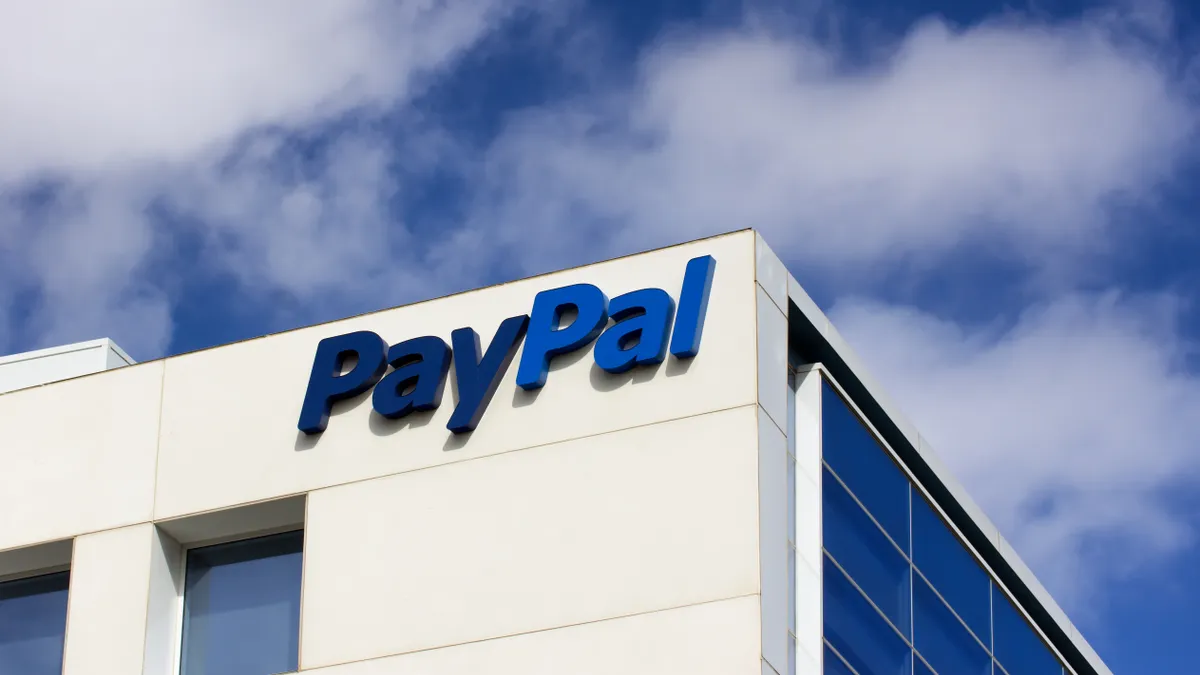Dive Brief:
- PayPal sued the Consumer Financial Protection Bureau (CFPB) on Wednesday to block a rule the peer-to-peer payment company argues would confuse customers and potentially deter them from opening accounts.
- The "prepaid rule," which went into effect April 1 but has not been fully implemented by many financial services providers, requires that PayPal and Venmo customers be given a disclosure form the company says mistakenly leads people to believe PayPal charges a fee to access funds, make a purchase with a merchant, or send money to family and friends in the U.S.
- If the rule slows PayPal’s growth, it could disrupt one of the biggest disruptors in finance. Payment volume has increased 27% over the past year at PayPal, including a 64% jump at subsidiary Venmo.
Dive Insight:
At the root of the dispute is that the CFPB lumps digital wallets under the same umbrella as reloadable prepaid cards. "Unlike [general-purpose reloadable] cards, digital wallets are not purchased in brick and mortar stores and consumers are not charged fees to open, maintain or access the funds stored there," PayPal’s suit said.
Scott Talbott, senior vice president for government relations at the Electronic Transactions Association, a payments industry trade group, criticized the prepaid rule, saying its "rigid" short form disclosure requirements does not account for product differentiation in the market.
"The rule is written as a one-size fit-all since you can only list the fees, but not with further explanation," he said, according to Bloomberg Law.
PayPal claims the rule will hamper its ability to expand its product set, to include ventures into credit.
"PayPal supports the mission of the CFPB and regulations that empower consumers to make informed financial decisions," PayPal said in an emailed statement, according to American Banker. "Although well intentioned, the prepaid rule was designed primarily for physical prepaid cards and fails to account for the significant differences between those cards and digital wallets."
PayPal already discloses digital wallet terms and conditions to consumers, but the CFPB’s rule requires it to include government-scripted disclosures that have little connection to how PayPal presents its services and charges fees, PayPal said in the lawsuit. That may lead some to believe they are receiving new accounts and services with new fees, the company said.
The rule also hinders customers’ ability to link some PayPal credit products to their PayPal digital wallets, which delays fund availability, the company said in the suit.
"Having exhausted other options, PayPal is filing suit to end the unsuitable application of the prepaid rule and its negative impact on digital wallet consumers and our business," PayPal’s statement said.











